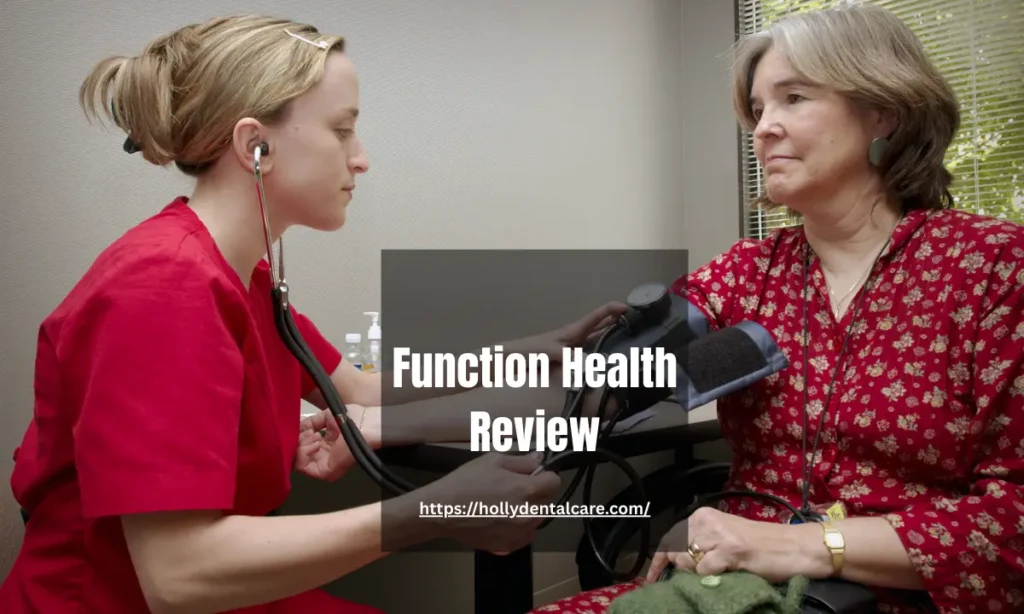Just a few years back health care was mostly about treating diseases, however, it has undergone a major shift and now it is focused on managing health in a proactive manner. The change of a lifetime for health care is firmly associated with the idea of a Function Health Review, a comprehensive, systems-oriented approach that revolves around uncovering the original sources of the disease and providing relief instead of simply alleviating symptoms. Functional health dramatically depends on functional medicine, lifestyle medicine, nutrition, genomics, and preventive healthcare to create a personalized plan for patients to keep their health for a long time.
What Is Functional Health?
Functional health is a state where an individual’s social, emotional, and mental strengths are at the maximum and a good harmony exists among the different body systems. Moreover, the key difference of these two methods is that functional health emphasizes the relationships between the body’s systems like the gut, brain, hormones, immune system, and metabolism, while also recognizing that diseases and organs have been isolated for treatment.
Key Features of Function Health
- Root-cause analysis: finding out the basic disturbances in the body that have led to illness.
- Personalization: designing one’s health program that fits with their genes, habits, and environment.
- Integration: the combined use of standard diagnostics, diet, lifestyle changes, and maybe alternative therapies.
- Prevention focus: maintaining the health of the body over the long run, rather than just temporarily alleviating symptoms.
Rule of Functional Health
- Every person is unique and their DNA, the environment and lifestyle they choose decide their health needs.
- Functional health involves patients and doctors actively participating in the decision-making process.
- The human system is an integrated network where all parts are interdependent, thus, any dysfunction in one part will have an impact on others.
- Good health is largely dependent on the proper management of various aspects of human life such as physical, psychological, dietary, and environmental.
- The idea is to go from just being without illness to having exuberance, stamina, and lasting wellness.
Assessment in Functional Health
- Consultations encompass questions about diet, exercise, sleep, stress, environment, and family history.
- The use of this tech is widespread in the fields of: chronic diseases (diabetes, autoimmune, fatigue), gut disorders (IBS, SIBO), and mental health (anxiety, cognitive decline).
- It is instrumental in the regulation of hormones (thyroid, PCOS, menopause) as well as general health (nutrition, aging, heart health).
Scientific Evidence Supporting Functional Health
- Gut Microbiome & Health: The studies release the relations between gut bacteria and immunity, metabolism, and brain function.
- Lifestyle Interventions: Food, exercise, and stress control have been found to lower the risk of chronic diseases more efficiently than drugs only.
- Nutrigenomics: Data validate the impact of gene variants on diet requirements and metabolic function.
- Inflammation & Chronic Disease: The emphasis on inflammation reduction in functional health concurs with extensive scientific evidence on inflammation in cardiovascular diseases, cancer, and neurodegeneration.
Benefits of Functional Health
- Personalized Care: Custom health plans mirror the distinct biology of a person.
- Prevention-Oriented: Lowers dependence on drugs by focusing on the main causes of the lifestyle.
- Empowerment: Facilitates patients to be more involved in health decision-making.
- Chronic Disease Management: Provides different methods when traditional medicine is no longer effective.
- Whole-Person Focus: Physical health along with psychological, emotional, and spiritual health are taken into consideration.
Limitations and Criticisms
- Extensive testing and slow consultations can result in very high costs which insurance sometimes does not cover.
- Because of wide-ranging differences between practices, there are also inconsistencies in treatment.
- Some pieces of equipment and treatments for health conditions may not be thoroughly scientifically validated.
- Patients as well as doctors need a lot of time for care.
- Excessive testing can raise the patient’s anxiety level or lead to additional unnecessary procedures to be done.
Conclusion
Functional health is a revolutionary shift in the healthcare system that substantially redirects the process from the common quick-fix of symptoms to customized, causative and prevention-oriented approaches. The idea depicts the complete interactions between the body, lifestyle and the surroundings, thus empowering people to take care of their own health.
Despite the existence of issues such as high costs, lack of sufficient evidence, and non-uniformity of standards, the amalgamation of scientific breakthroughs in genomics, AI and wearable technology is very promising. In the end, functional health can be a link between the two traditional medicines and holistic care, thereby establishing a system that not only fights against diseases but also promotes health and wellness at all times.
Also read:- Tooth Decay Self-Care: How to Protect Your Teeth and Prevent Cavities
FAQs
What is functional health?
Functional Health is a health care system that uses a whole-person approach and treats the main source of diseases and not only the symptoms of the illness.
How is it different from conventional medicine?
Functional health puts a strong emphasis on prevention, lifestyle, and the balance of the whole body whereas conventional medicine mainly concentrates on the treatment of diseases.
Who can benefit from functional health?
Anyone can, primarily those people with chronic conditions and individuals who are looking for preventive care and everlasting health.
Is functional health evidence-based?
Yes. The majority of the aspects such as nutrition, gut health, and lifestyle medicine are science-supported, but there are some tests that need more research.



